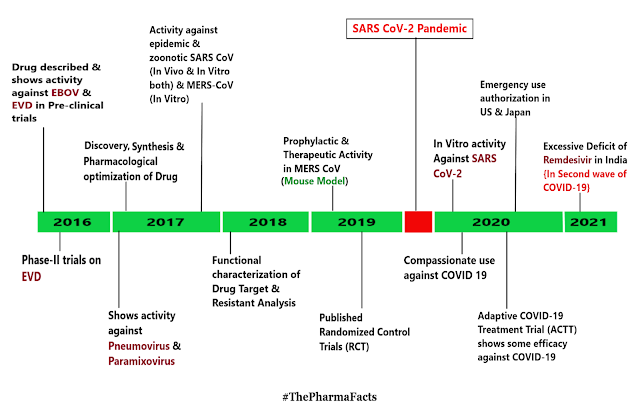“88% of pregnant women show asymptomatic (B types) of CORONA symptoms.”
Normally COVID-19(Coronavirus) targets mainly the respiratory system of the human body, many people suffering from chronic respiratory disease those people get easily targeted by the COVID-19 virus, but if you are pregnant then your problems will be going to increases, prescribing medication for pregnant women been always tough for a gynecologist in term of mother and fetus health is a concern, but now problems are getting more worst by the entry of COVID-19.
If you are pregnant, then your mind has a lot of questions like, will your baby child live safely in this pandemic ? or if you have tested positive for Covid-19, what will you do? etc The answers have not been found yet, scientists are constantly working on it.
Indian Council of Medical Research-National Institute Research in Reproductive Health (ICMR-NIRRH), in collaboration with the Medical Education and Drugs Department (MEDD) and BYL Nair Hospital, worked on a new topic, and after seeing the results you will shock. “88% of pregnant women show asymptomatic (B types) of symptoms.”
This study running under the Indian Council of Medical Research-National Institute for Research in Reproductive Health (ICMR-NIRRH) in collaboration with Medical Education and Drugs (Department MEDD) & BYL Nair Hospital find out that most of the COVID-positive shows (TypeB) type of Symptoms.
For the investigation, information collected from 1,140 COVID-positive pregnant women. However, just 37 (11.5%) showed COVID-symptoms when they were hospitalized for delivery. The presence of the virus in women varied (0-40%) across various hospitals. “According to Our estimated result, out of every 9 asymptomatic women, there will be the presence of one symptomatic woman. ” which was displayed in the European Journal of Obstetrics & Gynecology and Reproductive Biology on September 23.
"Identification of asymptomatic pregnant ladies will secure them and their new-born child [as well as] medical staff, and it will help to break the chain of CORONA-virus spreading. The main advantage of detecting asymptomatic pregnant women is useful for ensuring safe obstetric & neonatal care.” Dr. Rahul Gajbhiye said.
Dr. Ashok Anand, head of obstetrics and gynecology said that “During pregnancy, from prescribing the medication to, so many other problems are also there, just like during pregnancy immunity level of pregnant womens has got low, which makes more probable to COVID infection.”, Over 600 COVID-positive pregnant women had treated by, Sir JJ Group of Hospitals, Mumbai.
PregCovid is open for all public and private Covid-19 hospitals in India that provide care to COVID-positive pregnant women. To be part of the registry, see https://pregcovid.com/for-covid19-hospitals/.
Some Frequently Asked Questions regarding the effect of COVID-19 on Pregnancy,
What effect will coronavirus have on my baby if I test positive for COVID-19?
As this is a very new virus, all the information and evidence is still not available to us. There is no evidence to suggest an increased risk of miscarriage if exposed to COVID-19. There is also no evidence of vertical transmission, which refers to the ability of the virus to pass to your unborn baby during pregnancy.
In a study of nine pregnant women in China who tested positive for COVID-19, all nine babies tested negative for the virus and were healthy overall. One pregnant lady in London tested positive for coronavirus and later her newborn also tested positive. However, it is unclear whether the baby contracted the viral infection in utero or shortly after birth. Expert opinion is that the baby is unlikely to be exposed during pregnancy, and it is unlikely for the baby to have any defects in development as a result. As of now, there isn’t any new evidence that says otherwise.
What are the effects of Coronavirus in the first trimester?
There is still no data available in the Lancet study on the first trimester, all pregnant women who participated in the Lancet study were all in their 2nd or 3rd trimesters. But for those who suffer from severe symptoms, then there will definitely be problems during obstetrics.
Are pregnant women a vulnerable group for Coronavirus?
It is not yet known if pregnant women are more susceptible to be infected by COVID-19 when compared to the normal population. Despite this, pregnant women are advised to reduce social contact with social distancing. It is an established fact that in some women, pregnancy alters how the body fights some viral infections. Though evidence for coronavirus is still insufficient, it is for this reason that pregnant women are advised to be extra cautious during this pandemic.
Will I be able to breastfeed my baby if I have suspected or confirmed coronavirus?
Yes. The main risk of breastfeeding is due to the close contact between you and your baby which can pose a risk of droplet infection that can spread to the baby while breathing. Discuss the risks and benefits with your treating doctor and family before you make a decision. Here are some steps to follow to minimize the risk of transmission:
Wash your hands before feeding or touching the baby, breast pump, or bottles
Try to avoid coughing or sneezing while you feed
Wear a face mask while feeding, if available.
If you are using a breast pump, follow instructions for cleaning and sterilizing properly.
Here are some actions you can take to prevent getting the disease during pregnancy:
Wash your hands frequently. Hand hygiene can really protect you from exposure to COVID-19. You may hear this over and over but with good reason.
Practice social distancing. Always maintain a distance of at least 2 meters or 6 feet from others when you are in a public place. Avoid contact with others as much as possible.
Get your flu vaccination on time. Though the flu vaccine does not protect you from exposure to COVID-19, it does make you less susceptible to influenza, which can cause complications during pregnancy.
Use a tissue when you cough or sneeze, throw the tissue in the dustbin. Wash your hands right after.
Do not ignore any respiratory symptoms. If you develop a cough or any respiratory distress, do not hesitate to call your doctor. After taking a detailed history, your doctor will decide if you need to get tested for COVID-19.
Go virtual. As much as possible, consider virtual consultations instead of prenatal visits to your gynecologist. Try to minimize or altogether avoid spending time in the doctor’s waiting room or in the hospital. However, some tests will require you to be there in people such as ultrasound, blood tests, and fetal testing.
Work from home whenever possible.
Stay safe. Symptoms such as high fever with or without continuous cough may indicate a possible coronavirus infection. Avoid coming in close contact with anyone showing these symptoms.
Its time to look for support from your family and friends. Keep in touch via emails, messages, or video chats. Consider taking up a new hobby or acquiring a new skill. Do things that make you happy and put your mind at ease such as taking a long shower, meditating, or reading a book. Exercise as per your doctor’s advice and regularly do your Kegels and squats as recommended.











Comments
Post a Comment
If you have any query or If you like the post,Please let me know.